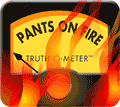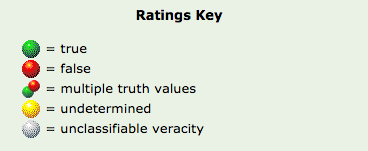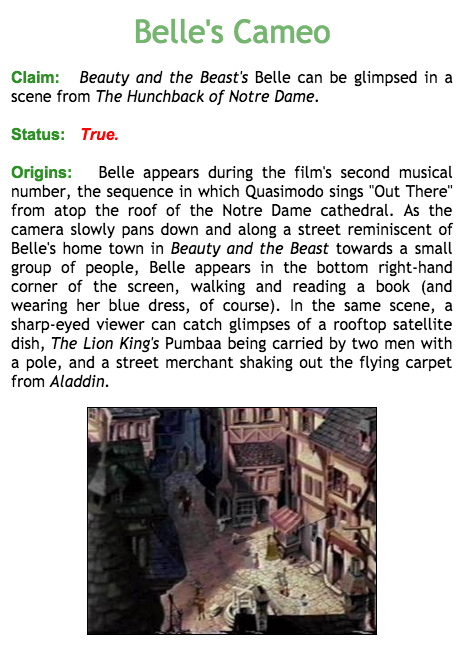How to Fact Check

Wondering how to Fact Check?
For works that are purportedly “non-fiction,” how do we know what we are reading, hearing, or seeing is true? Fact checkers have the job of conducting quick and accurate research to weigh in on the truthfulness of a work. Do journalists always fact check? How about your social connections?
Fact-Checking Considerations for Writers
The Pultizer Prize winning fact checking site, Politifact, has written about the 7 steps they recommend to writers and publishers to ensure that factual information hits the presses. They advise to ask for evidence that backs up the claim being made, and let the parties know that you will be fact-checking them. You should also turn to other reputable fact checkers to see what comes up, so pop by FactCheck.org, Fact Checker, Snopes and other fact-checking sites. Next, they recommend partaking in some Google Advanced Search wizardry and searching the deep web. (The deep web is, go figure, the stuff that is not open to surface surfing and includes things like paid databases, for example, Lexis Nexis and CQ). If you are interested in searching the deep web with not-so-deep pockets, you can check out the databases available at your local library. Politifact fact checkers also advise that you consult experts who can offer different perspectives and look for related books. It is also important to take a step back, take a break, and think about what else you should be considering.
Fact-Checking Considerations for Readers, Listeners, Seers, Doers, Shakers, and Social-Media-Philes
With all I have to do, are you telling me I have to be a fact checker now too? Hmmm, yes, sorry, we are. The good news is that you can check out some of the reputable fact-checking sites and look at their findings. You might like:
- PolitiFact.com uses the “Truth-o-Meter” to rank the amount of truth in public persons’ statements. Politfact.com won a Pulitzer Prize in 2009. Very untrue claims warrant a “Pants on Fire” rating.

- FactCheck.org is a non-partisan and nonprofit nonprofit site, self-described as a “‘consumer advocate’ for voters that aims to reduce the level of deception and confusion in U.S. politics”
- FlackCheck.org is the video-based counterpart FactCheck.org, using humor & parody to debunk false political advertising, poke fun at extreme language, and hold the media accountable for their reporting on political campaigns
https://www.youtube.com/watch?v=6snFbFtmCH4
[We recently posted about overstatements and exaggerations (hyperbole) and you read more about rhetoric here.] - Snopes.com focuses on urban legends, folklore, myths, rumors, and misinformation, and rates them according to true, false, multiple truth values, undetermined, and unclassifiable veracity:

Here’s one we bet you knew already:
- The Fact Checker is project of The Washington Post, and is known for grading politicians on the factual accuracy of their statements with one to four “Pinocchios”

- FactCheckEd.org is sister site to FactCheck.org is an educational resource for h.s. teachers and students
- For just browsing your social media feed, we like these practical tips that George Takei recently shared on Facebook… it’s a video called How to Fact Check Fake News Sites
- There is also a difference between the “filters” that info passes through on its way to becoming news and outright fake news. If you are interested in this topic, the PBS Idea Channel recently covered this on YouTube with an episode called How NOT to Spot Fake News
That wasn’t so bad was it? Pants on fire, Pinnochios, and funny videos. Are you ready for the next fact-checking job? Here’s where you really get to look at the information for yourself, because it is a partial list of U.S. Databases and Archives:
- Library of Congress: access to searchable documents, historical photos, and digital collections
- National Archives: online public access to historic documents, research, government information, etc; You can research by topic here
- Bureau of Labor Statistics: databases, tables, and calculators for inflation, unemployment, employment projections, etc
- U.S. Customs and Border Protection: Stats and Summaries
- CIA World Factbook: World history, people, government, economy, etc; the Kid’s Zone is organized by grade level
- State Legislative Websites Directory: database of information from the legislatures of all 50 states (bills, statutes, legislators, etc)
- Catalog of U.S. Government Publications: search records for historical and current publications, with direct links when applicable; the main site is the U.S. Government Printing Office
Today’s activity:
On the internet, a friend posts the following:
If the government has no knowledge of aliens, then why does Title 14, Section 1211 of the Code of Federal Regulations, implemented on July 16, 1969, make it illegal for U.S. citizens to have any contact with extraterrestrials or their vehicles?
Answer:
You may have headed to Snopes to find: http://www.snopes.com/legal/et.asp and the removed section: http://message.snopes.com/legal/info/etlaw.htm
Alternatively you may have headed to the U.S. Government Printing Office to see for yourself that Title 14, Section 1211 of the Code of Federal Regulations has been removed from the publication by checking out:
Now before you phone home about your top-rate researching skills, you may want to check out these related articles that should help you know when you might not be reading or hearing factual, fact-checked information:
- Sneaky, Sneaky What Did You Just Say to Me? #1 | #2
- Don’t Fall for that Fallacy: #1 | #2 | #3
- Summary of the Top 10 Fallacies (Parker & Moore’s top 10)
- Arguments and Argument Maps for Kids
- And a full list of our posts on Rhetoric for Kids

